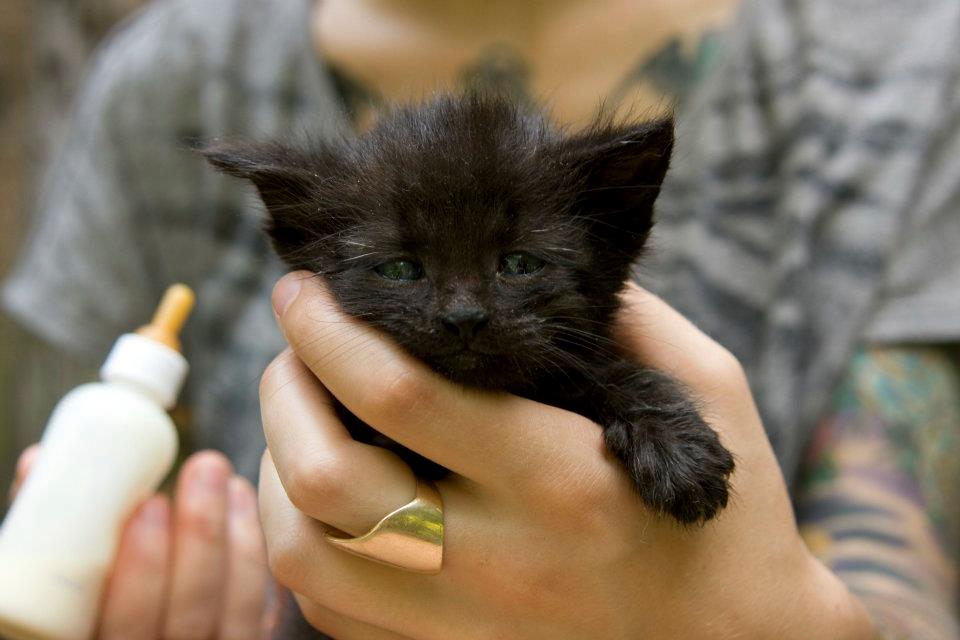
Caring for Orphaned Baby Kittens: A Comprehensive Guide
Introduction
Losing a mother cat can be a devastating experience for both the kittens and their human caregivers. However, with proper care and attention, orphaned kittens can thrive and grow into healthy, happy cats. This comprehensive guide will provide you with all the essential information you need to know about caring for baby kittens when their mother is gone.
Assessing the Situation
Determining the Age of the Kittens:
- Newborn kittens (0-2 weeks): Eyes closed, unable to walk or regulate body temperature.
- Neonatal kittens (2-4 weeks): Eyes open, but still wobbly and dependent on their mother for warmth and nutrition.
- Weaning kittens (4-8 weeks): Starting to eat solid food, but still require supplemental milk.
- Older kittens (8+ weeks): Fully weaned and able to eat solid food.
Checking for Injuries or Illnesses:
- Examine the kittens carefully for any cuts, bruises, or other injuries.
- Check their eyes, ears, and nose for any discharge or signs of infection.
- Observe their breathing and behavior for any abnormalities.
Providing a Safe and Warm Environment
- Create a cozy nest for the kittens in a quiet, draft-free area.
- Line the nest with soft blankets or towels.
- Use a heating pad set to low or a warm water bottle wrapped in a towel to provide warmth.
Feeding the Kittens
Choosing the Right Milk:
- Use a commercial kitten milk replacer specifically formulated for orphaned kittens.
- Avoid using cow’s milk or other dairy products, as they can cause digestive upset.
Feeding Schedule:
- Newborn kittens: Feed every 2-3 hours, around the clock.
- Neonatal kittens: Feed every 4-6 hours.
- Weaning kittens: Gradually reduce the frequency of feedings as they start eating solid food.
Feeding Technique:
- Use a kitten bottle with a small nipple.
- Hold the kitten upright and gently insert the nipple into its mouth.
- Allow the kitten to suckle until it is full.
- Burp the kitten after each feeding by gently patting its back.
Introducing Solid Food
- Start introducing solid food around 4 weeks of age.
- Offer kitten-specific wet or dry food moistened with warm water.
- Gradually increase the amount of solid food as the kittens get older.
Hygiene and Grooming
- Keep the kittens clean by gently wiping them with a warm, damp cloth.
- Trim their nails regularly to prevent scratching.
- Check their ears and eyes for any discharge or debris.
Socialization and Enrichment
- Handle the kittens frequently to socialize them.
- Provide them with toys and activities to stimulate their physical and mental development.
- Introduce them to other kittens or friendly adult cats if possible.
Health Care
- Take the kittens to a veterinarian for regular checkups and vaccinations.
- Deworm the kittens as recommended by your veterinarian.
- Monitor the kittens’ weight and growth to ensure they are developing properly.
Special Considerations
Fading Kitten Syndrome:
- A life-threatening condition that can affect orphaned kittens.
- Symptoms include lethargy, weight loss, and dehydration.
- Seek immediate veterinary attention if you suspect fading kitten syndrome.
Constipation:
- Kittens may become constipated if they are not getting enough fluids.
- Gently massage their abdomen or give them a warm bath to stimulate bowel movements.
Diarrhea:
- Diarrhea can be caused by a variety of factors, including infection or dietary changes.
- Keep the kittens hydrated and consult a veterinarian if the diarrhea persists.
Conclusion
Caring for orphaned baby kittens can be a challenging but rewarding experience. By following the guidelines outlined in this comprehensive guide, you can provide the kittens with the essential care they need to thrive and grow into healthy, happy cats. Remember to be patient, attentive, and seek professional veterinary advice whenever necessary. With love, dedication, and proper care, these vulnerable little creatures can overcome the loss of their mother and find a new home filled with warmth, nourishment, and affection.
